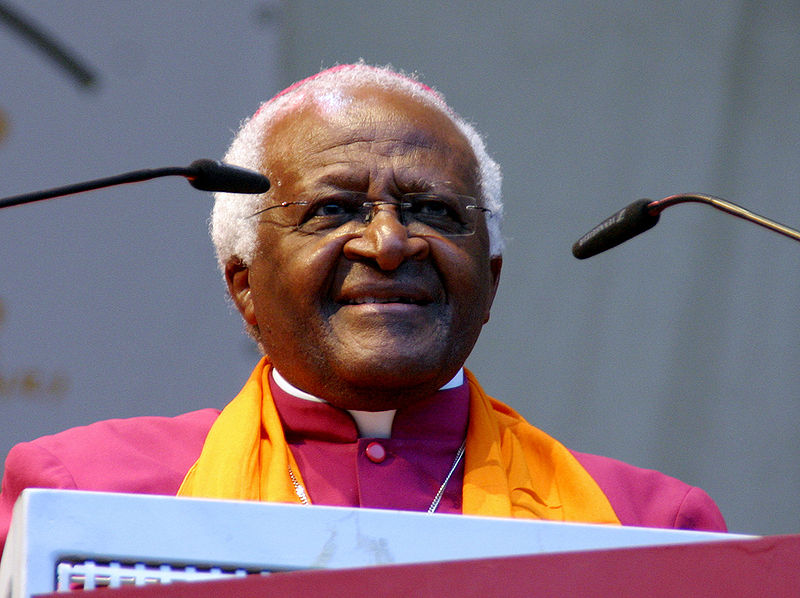 Nairobi – Africa’s younger generation of leaders is being held back from contributing to the development of the continent because of ageism, Archbishop Desmond Tutu warned here today.
Nairobi – Africa’s younger generation of leaders is being held back from contributing to the development of the continent because of ageism, Archbishop Desmond Tutu warned here today.“The tragedy of elite leadership in Africa has been its focus on benefiting a small minority…The ageism towards young Africans in the sphere of leadership cannot be overstated in spite of the fact that they make up the vast majority of the African population,” Archbishop Tutu said in a video recording to participants at the King’s Africa Debates.
The Debates were organised by King’s College London’s African Leadership Centre (ALC) here where Fellows on a Masters peace and security programme took part in a simulation exercise covering the issues relating to the international criminal justice system and Africa, and the threat of terrorism to Kenya and Nigeria.
Archbishop Tutu said that young Africans “must captain the ship that is Africa and speak for themselves and all of us”.
He added: “The world is a fast changing place and young Africans continue to fight for a place in the global space irrespective of the shambolic heritage that they have been given.”
Young people are one of Africa’s greatest resources, crucial to its future development.
The continent has the world’s highest population growth, which is projected to double by 2050.
It also has the youngest population of any region in the world, which will continue to be the case for many years.
But Archbishop Tutu noted: “While condemning terrorist activities in all its forms, it is essential to recognise that these actions are energised by vast numbers of young people that work as foot soldiers and have reached a point where they feel there are no alternative options.
“So they are willing to risk their lives and ostracisation from broader society to exercise the only form of voice that they feel is available to them.
“Unfortunately attempts to address the violent use of terror tactics are unlikely to reap the benefits unless root cause issues are examined.
“It is essential to ask why substantial numbers of people are willing to ply such a dangerous path,” Archbishop Tutu said.
He said the challenge of leadership was responsible for this state of affairs.
That was why he backed the ALC because it “is an initiative that is set up to help young Africans steer this continent through its highly innovative Fellowship Programmes that aim to contribute to Africa’s long-term security and development by mentoring the talent of young African leaders”.
The ALC was established here in 2010 and it trains and mentors young Africans with the potential to lead and enable innovative change in their communities and in the continent.
The vision of the ALC is one of “transformative change in Africa”.
Its goal “is to create a pool of leadership talent with the abilities, skills, experience and confidence to engineer African solutions, grounded in African realities, to meet the challenges facing Africa”.
Peace and security issues, crucial to the development of Africa, play a central part at the ALC.
Its founding Director is Nigerian Dr. ’Funmi Olonisakin.
She has also served as the Director of the Conflict, Security and Development Group at King’s since 2003.
Although the ALC took off last year, King’s has been running a similar programme in London for a number of years – especially the Peace and Security Fellowships for African Women, which was introduced in 2005.
It is designed to expose young and mid-career professional African women to the complexities of conflict, security and development and provide them with the practical tools needed to develop policy and drive change.
It has already developed a network of African women working in the field and linked them with African regional institutions.
The programme has been tremendously successful with hundreds of applications received annually from African women.
“I was awakened to a reality of complex aspects of peace and security that I never thought existed,” says Claudine Inamahoro from Burundi.
Gihan Eltom from Sudan noted: “The women I met throughout the fellowship were a great source of inspiration and they left an empowering effect indeed.”
A critical component of the ALC programme is its mentoring programme.
It can call on more than 70 mentors who are drawn from a network of African and non-African scholars, policy developers, implementation experts and expert practitioners engaged in a wide range of fields that facilitate peace, security and development in Africa.
DD